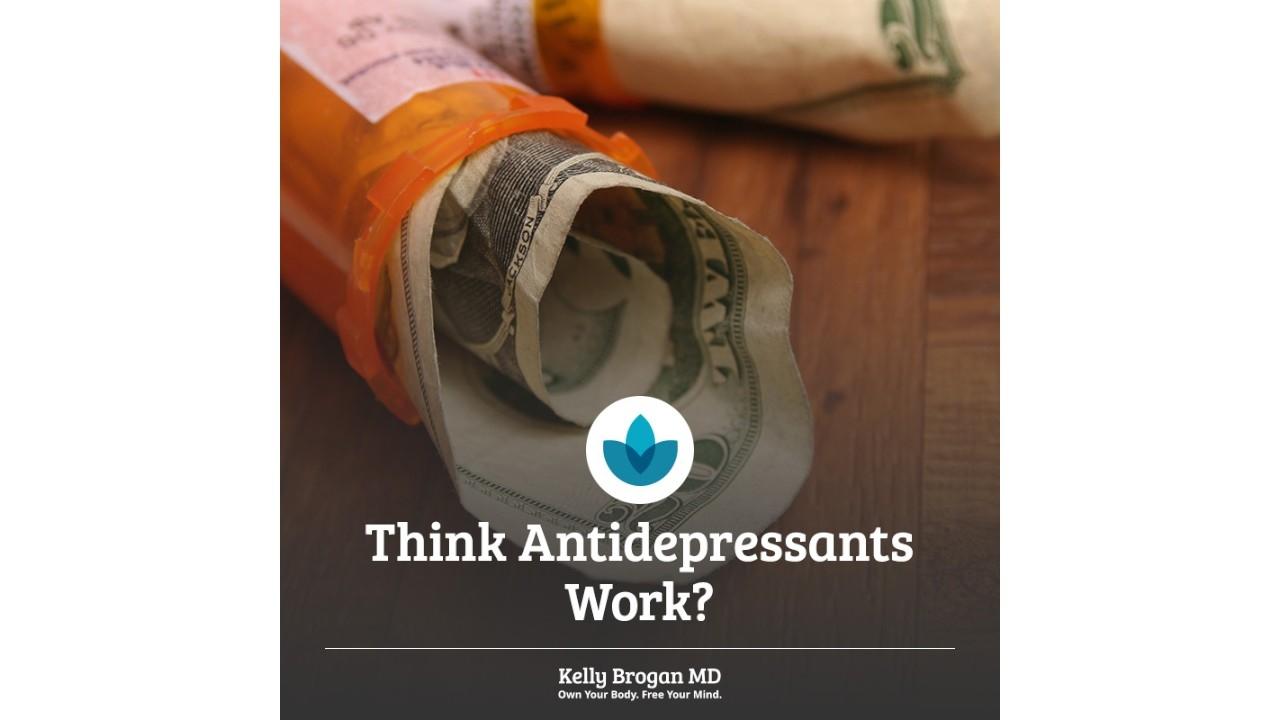Think Antidepressants Work? What You NEED to Know

"All I know is that Prozac saved my best friend's life," said a slightly agitated young woman in the third row of the conference room.
"You must be wondering how that can be true, and how everything I've just presented about over the past hour on the corruption of psychiatric data can also be true?" I offered in response.
I field this question often, and remember feeling the resistance behind the question myself when I began to confront some of the data that undermined what I had been taught about the safety and efficacy of antidepressants. "But I've seen them work!" I protested.
How have we come to believe that antidepressants undo depression?
It's a story we've been told. The thing is, we've been told this story by a wolf in sheep's clothing. We've been told that antidepressants are:
- More effective than placebo
- Safe for everyone, from babies to the elderly
- Recommended for long-term use
- Non-habit forming
- An antidote to brain chemical imbalances
In A Mind of Your Own, I have collected all of my research over the past 8 years to tell you a different story. One that you can take or leave, but one that deserves telling.
A recent editorial in Psychotherapy and Psychosomatics by Giovanni Fava illuminates a key ingredient in the myth of the chemical cure. Lead author of the first systemized review to legitimize what millions of patients around the world have been reporting around antidepressant withdrawal, Fava is back to tell us about the role of money in the illusion of antidepressant efficacy and safety.
Challenging the labeling of medication withdrawal as an almost innocent sounding, "discontinuation syndrome," Fava takes issue with the semantic shift from "conflict of interest" to "confluence of interest." It's just a confluence! Like a chance meeting of a DSM board member with thousands of dollars of industry revenue.
He writes:
Corporate interests have fused with academic medicine to create an unhealthy alliance that works against the objective reporting of clinical research (censorship), sets up meetings and symposia with the specific purpose of selling the participants to the sponsors (engineering opinions), gets its prodigal experts into leading roles in journals, medical associations and nonprofit research organizations (using the public relations industry) and provides the appropriate degree of retaliation to outliers (marginalizing dissident cultures).
Yikes! So this means that the representation of the science has been unduly influenced by that fact that those representing the science stand to profit from it. It also explains why we are conditioned by doctors, authorities, and media to believe a certain resounding message about safety and efficacy.
It's time to look behind the curtain together. What we'll find is that there's a little desperate man behind it, and that all we have to do to get home, is already within us.
Discover the Truth about depression and begin your journey, today.
Want to continue reading?
Enter your details below to read more and receive updates via email.









